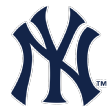CHICAGO -- The Los Angeles Dodgers seem to be on board with our content plan at ESPN, because just as they did during the National League Division Series against Arizona, they made such quick work of the Chicago Cubs that it gives us plenty of time to sit back and ponder which opponent L.A. should want to see in the next round, the World Series.
Since home-field advantage in the Fall Classic is now determined by overall record, the Dodgers hold that advantage no matter who they play. Beyond that, the choice between the Astros and Yankees is a tough call because the two AL combatants present very different sets of challenges for the Dodgers.
Let’s dig in.

Three reasons to root for the Astros
1. Bullpens. The Yankees’ bullpen is the most vicious in the game right now. While their rotation also has been razor-sharp this October, even if a starter does falter, the Yankees can line up five high-velocity effective relievers in a row, or go even longer than that if needed. That puts an enormous amount of pressure on the opposition to build an early lead.
The Dodgers’ bullpen has been near perfect in this postseason, and if they face the Yankees, the best they can hope for is to negate the advantage New York enjoys in this area against most teams. However, the Astros’ bullpen has struggled during the postseason, and in an L.A.-Houston matchup, the Dodgers would enjoy a decided edge.
2. Velocity. Aroldis Chapman. Dellin Betances. Tommy Kahnle. Luis Severino. Chad Green. You know the names. No one, and we mean no one, has as many fireballers as the Yankees. According to TruMedia, during the regular season, New York pitchers threw 2,587 pitches clocked at 97 mph or higher. That led the majors by 892 pitches. The gap between the first-place Yankees and second-place Reds was greater than the total number of 97-plus pitches of 18 teams.
There isn’t a direct relationship between velocity and results, however. Velocity helps in the aggregate, but at the level of each individual pitcher, there are other elements to retiring a hitter that come into play. However, if we look at just the velocity component, facing that array of fireballers could prove to be a tough task for the Dodgers’ lineup. Check it out:
Ouch. The Dodgers had three players with what could be looked at as good results against elite velocity, though the sample sizes are small. Chris Taylor went 6-for-16 against the hard stuff, Enrique Hernandez was 3-for-9 (presumably against lefties) and Curtis Granderson reached base in five of 10 plate appearances. Meanwhile, Yasiel Puig and Joc Pederson saw a combined 129 pitches clocked at 97 mph or higher. Together, they had zero hits on those offerings.
Small samples? Sure. But the Astros ranked just 13th in elite-velocity pitches (by our definition here), so why take the chance? Also, you may have noticed this already, but when you look at the names of those pitchers throwing that hard, that’s the spine of the Yankees’ bullpen, so that ties back in to reason No. 1.
Of course, the Astros’ numbers here don’t include a full season from the guy listed at No. 2 down below.
3. NL West nostalgia. Going with soft factors at No. 3 in both lists because it feels like the main topics are covered elsewhere. The Astros and Dodgers had a long, one-sided rivalry in the NL West, which favored the Dodgers, before the Astros were switched to the NL Central when the wild-card era dawned. Houston and Los Angeles met in a tiebreaker after the end of the 1980 season (won by the Astros), then hooked up again the next year in 1981, the strike year with a split season that resulted in the first-ever set of league division series (the NL one won by the Dodgers). So in a sense, these teams have never met in a postseason series that was really supposed to happen.

Three reasons to root for the Yankees
1. Lineup holes. This isn’t a slam on the Yankees necessarily, but the Astros not only don’t have any real holes in their lineup, they don’t have any glaring holes in any particular category. No team combines the three macro-level traits you look for at the level Houston does -- contact, power and patience. On top of that, they are athletic and effective on the basepaths. It’s a complete offensive group, which is why the Astros’ OPS+ this season (127) dwarfed that of the second-place Yankees and Twins (105).
On top of that, the Astros led the majors in OPS against righties (.827), far ahead of the second-place Yankees (.795). But whereas the Astros also ranked third against lefties (.814), the Yankees were just 12th. The Astros also were better on pitches in the upper third of the strike zone, leading the majors with an OPS of .847. The Yankees were good too, ranking fifth at .804. But the difference matters because L.A. likes to attack that upper part of the zone. The Dodgers’ pitching staff led the majors by allowing just a .628 OPS on those upper-third offerings.
2. Justin Verlander. It used to be a thing that you’d fear a hot starting pitcher in a short series. Now you fear hot bullpens, which the Yankees certainly have. However, Verlander is a throwback in this disappearing trait, having thrown a complete-game, 13-strikeout masterpiece at the Yankees. The only question is how often the Astros will get to throw Verlander given their need for him to help carry Houston past the Yankees.
3. For Vin. Vin Scully is a year into his retirement, yet there would be something really nostalgic for all baseball history nerds in the first Yankees-Dodgers World Series since 1981. Even if Scully isn’t at the mic, you can still imagine him saying, “Welcome to Dodger Stadium for Game 1 of the 2017 World Series between the Yankees and Dodgers.”
The verdict
In the end, the Dodgers should want to see the Astros. New York is a hot team, with a dynamic bullpen and the ability to win a game with one big blast supplied by any one of their power hitters. The Astros are the more complete team, with an offense that is balanced, deep and versatile. That makes it that much tougher to match up against them in the middle innings.
It’s also an offense that suddenly has stopped scoring runs against a red-hot New York pitching staff. Plus, the Houston bullpen has been enigmatic even if it remains a group with a solid recent track record.
Finally, the bottom line: The Astros won more games than the Yankees during the regular season, but it was New York that had the better run differential.
